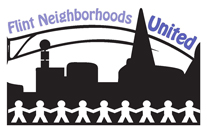North Flint Community members invited to give their thoughts about crime and violence in the Brownell Holmes Neighborhood
FLINT, MICH. – Two focus group sessions over the next five days will give a North Flint organization more insight on how to work with residents to curb crime in the Brownell Holmes Neighborhood. The Illuminating Community Change (IC2) Project hosts the focus groups on Thursday, January 10 from 5 p.m. to 7 p.m. at Holmes STEM Academy (6602 Oxley Drive, Flint, MI 48504), and Monday, January 14 from 1 p.m. to 3 p.m. at Hasselbring Senior Center (1002 W. Home Avenue, Flint, MI 48505).
During the discussion, neighbors will get the chance to talk about safety concerns and express their opinions on how these issues could be addressed. IC2’s goal is to work with residents in the area to reduce current levels of aggravated assaults and burglaries, as well as build trust with law enforcement. Information and ideas obtained from these focus groups will also help IC2 promote a larger vision.
Hamilton Community Health Network (HCHN) received a $1 million Community-Based Crime Reduction Grant in 2017 to help decrease crime and to revitalize targeted neighborhoods in North Flint. The grant was awarded by the US Department of Justice Bureau of Justice Assistance (BJA). IC2 works closely with the North Flint Neighborhood Action Council, and a number of other neighborhood and community organizations in North Flint, to fulfill the grant. The organizations recently partnered in November for neighborhood clean-ups.
For more information about the Illuminating Community Change Project and the focus groups, please contact Sandra Johnson, Project Manager at 810-262-1205.
About Hamilton Community Health Network
Hamilton Community Health Network is a non-profit organization dedicated to providing comprehensive, quality, community-oriented health care for the underserved throughout Genesee County. The organization is part of a national network of primary care centers (Section 330E) aimed at improving health services for inner city populations. These centers provide comprehensive care to patients regardless of their ability to pay.




